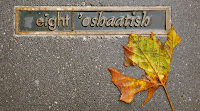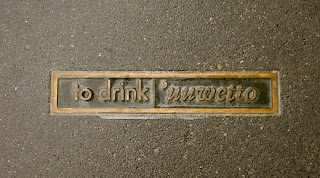RAMMAYTUSH: A DEAD LANGUAGE






For this blogpost I asked to few friends - from different walks of life and corners on earth to shortly describe what "LANGUAGE" means to them. Saludos, GUILLERMO
Milena Prajzlerova, Zdice, Czech Republic:
"Dorozumívání ~ neboli komunikace ~ je sdělování informace informaci,myšlenek,názorů a pocitů mezi živými bytostmi,lidmi i živočichy obvykle prostřednictvím společné soustavy symbolů. Zvířata se dorozumívají různými signály ~zvukovými,pachovými,tancem ap ~ tzv.první signální soustava,což platí i pro lidi. Hlavním dorozumívacím prostředkem člověka však je verbální komunikace ~ jazyk a řeč, tzv.druhá signální soustava. Kromě mluvené řeči a písma se používají i další systémy ~ notový záznam hudby,chemické a matematické značky, dopravní značky,vlajková a prstová abeceda, Morseova abeceda ap. Pro dálkové dorozumívání slouží média a telekomunikace. Pro dorozumívání v mezinárodním měřítku je překážkou různost jazyků ~ což se řeší pomocí světových jazyků ,překladů, tlumočení nebo strojovým překladem. Spřáním krasného dne, Milena.
John Hollinshead, London, England:
"My dry view of language: We make our own world and everything in it through language, so language makes me human (homo sapiens – the thinking animal), able to interact with other people, and the world around me, and to understand and conceive ideas. However, to badly paraphrase an Austrian philosopher: if one cannot speak about something, one can only be silent [and will never know what one missed!]. My romantic view of language: There can be a very beautiful and sensually exciting recognition of artistry in language. For example in haiku, or the poetry of a connoisseur of language such as Wallace Stephens, (emphasis added, as it captures what I struggle to convey:
This linguistic phenomenon can also be found in the adept presentation of ideas, exemplified by Plato in his dialogues, by Camus in ‘The Myth of Sysphus’, or by Sartre in ‘No Exit’.
"The death of an 85-year-old woman in the Andaman islands, part of India but physically closer to Indonesia, has marked the death of an entire language. 'Boa Sr' was the last speaker of the Bo language thought to have been spoken by the Bo tribe for up to 65,000 years. The story of her language is not an unusual one. Out of the roughly 6,000 languages spoken in the world, about half of them are in danger."
BBC broadcast 05 February 2010
Para mí la lengua es el alma de nuestra personalidad, lo que nos hace humanos, lo que nos mueve desde que somos pequeños a ser inquisitivos, a apropiarnos de los objetos mediante su nombre. La lengua es un instrumento mágico porque tiene infinitas posibilidades en el abra cadabra de sus letras que forman signos y significados. La lengua nos hace únicos.
Esta definición muy personal y nada académica, encierra mi sentir respecto a la Lengua. Por ejemplo, cuando hablo en inglés extraño muchas veces las palabras y expresiones que jamás tendrían una traducción exacta; claro que uno se las averigua, pero es en esos pequeños titubeos, en esas partículas de tiempo, que puede caber todo un universo. La Sorella."
Victor Ganes: "language" in Romanian - "limba".
Matthias Pfender, Biberach an der Riß, Baden-Württemberg, Deuschland:
"Sprachen ermöglichen uns Menschen uns zu artikuliern, mit anderen Menschen zu komunizieren und Gedanken auszutauschen. Sprachen bringen Kulturen und unterschiedliches Gedankengut zusammen und ermöglicht den Austausch. Einer fremden Sprache nicht mächtig zu sein, kann für Menschen aber auch eine gewisse Unsicherheit und das Gefühl der Ausgrezung vermitteln."
Reid Senescu from Stanford University said: "Language is a lens through which I comprehend the world. The world creates my lens through which I comprehend language."
Babette I. Ferrer from Barcelona, Catalunya said: "EL LENGUAGE ES EL MEDI DE COMUNICACIÓ MES SONOR", es medio en broma pero en realidad es el más real, no te parece?, tambien la musica es un medio de comunicación sonoro pero no todo el mundo lo interpreta a la primera. un fuerte abrazo. babette
Miss Phuong Pham from Sa Pa, Vietnám said:
"Trong tiến trình phát triển nhận thức của loài người, đầu tiên, các từ có nội dung nghèo nàn và mờ nhạt. Nhưng do ảnh hưởng của tiến trình văn hoá nhân loại mà các từ dần dần được cấp thêm những nét nghĩa tinh tế hơn cho phù hợp với tư duy của con người về sự vật mà từ phản ánh. Trong tiến trình này, từ chỉ còn là một cái vỏ – nơi để đổ đầy tư duy của chúng ta về một sự vật cụ thể.
| CĐBH Tư duy (HT ý niệm) | CBH Ngôn ngữ (HT tín hiệu) | |
| 1 | Khái niệm | Từ ngữ định danh (từ) |
| 2 | Phán đoán | Ngữ, câu/ phát ngôn (câu) |
| 3 | Suy lí | Tập phát ngôn, đoạn (văn bản) |